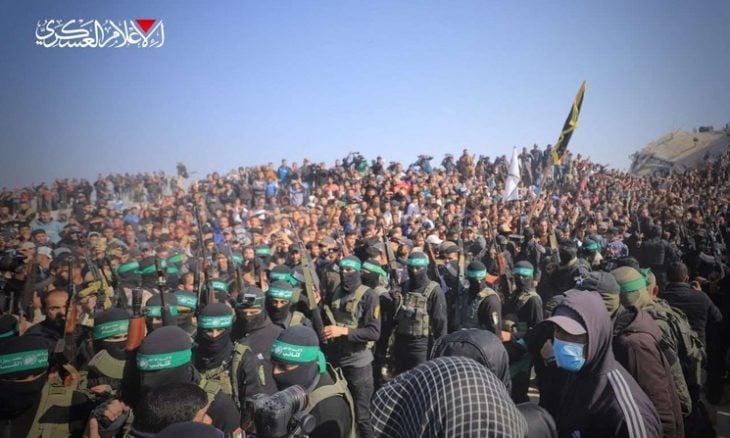According to intelligence assessments in Israel, Hamas is actively using the current ceasefire to restore its military capabilities and replenish its ranks with new recruits in preparation for a return to combat in the Gaza Strip.
Hamas assumes that Israel, backed by the Trump administration, will not alter its positions regarding key negotiation points, including the return of all hostages, the reduction of Hamas’ control over Gaza, the disarmament of its military wing, and the deportation of its leadership abroad.
Hamas publicly announced days ago that it will not relinquish its rule in Gaza, disarm, or deport its leaders.
This fundamental gap in positions appears irreconcilable, and officials in Hamas and Islamic Jihad acknowledge this reality.
For this reason, security sources report that Hamas and Islamic Jihad delegations recently traveled to Tehran, where they met with Iran’s Supreme Leader Ali Khamenei and the commander of the Islamic Revolutionary Guard Corps (IRGC), General Hossein Salami, to coordinate their next moves against Israel.
On February 21, General Ibrahim Jabari, an advisor to the IRGC commander, threatened during a military exercise that “Operation The Righteous Truth Number 3” would be launched at an opportune moment to destroy Israel, specifically targeting Tel Aviv and Haifa.
Senior security officials believe that these Tehran meetings resulted in agreements on financial aid transfers to Hamas and the smuggling of weapons into Gaza and terrorist groups in northern Samaria.
Hamas’ military wing is reportedly planning renewed attacks inside Israeli territory.
The recent failed terrorist attacks on buses in Bat Yam and Holon should be viewed in this context.
Additionally, the release of hundreds of terrorists into Judea and Samaria during the first phase of the deal has strengthened Hamas’ military capabilities in the field.
Commentators in Gaza predict that Israel will resume fighting by mid-March.
They expect Israel to focus first on suppressing terrorist activity in northern Samaria before shifting additional forces to Gaza.
According to these assessments, Israel is likely to restart military operations once negotiations on the second phase of the deal reach a deadlock and after the new Chief of Staff, Eyal Zamir, assumes office early next month.
Hamas anticipates that the renewed fighting will be intense, with backing from the Trump administration.
The IDF is expected to launch large-scale incursions into areas it previously avoided, such as refugee camps in central Gaza.
Rather than isolated raids, the anticipated strategy involves dividing the Gaza Strip into three sections using three IDF divisions in the initial phase. This maneuver will also halt the flow of humanitarian aid into Gaza.




